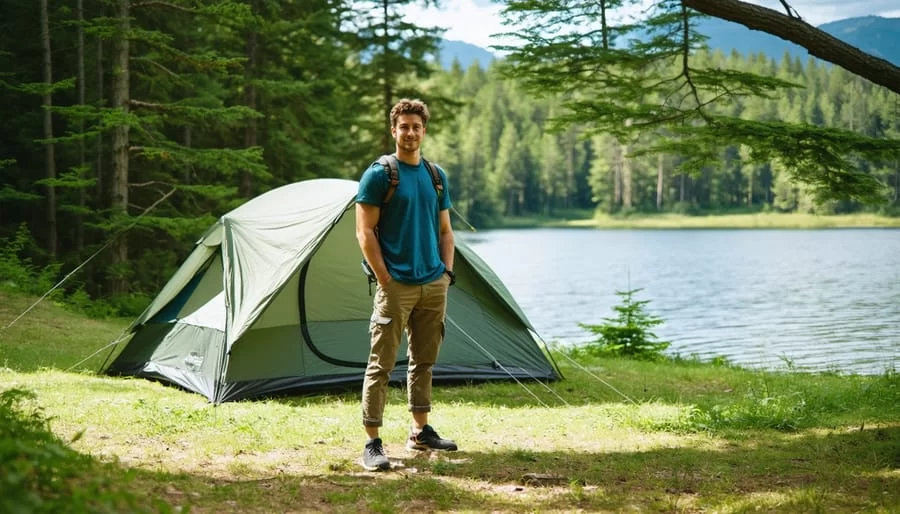Planning a camping trip by a lake? Discover essential tips on what to look for when choosing the perfect campsite by the lake. Learn about location, amenities, safety, and more to ensure a great lakeside camping experience.

What to Look for When Choosing a Campsite by a Lake
- Location
- Water Access
- Safety Considerations
- Campground Amenities
- Wildlife and Environment
- Personal Experiences
1. Location: Finding the Perfect Spot by the Water
When choosing a campsite by a lake, the first and most important factor is location. The ideal spot offers not only beautiful views but also convenient access to activities like fishing, swimming, or kayaking. Look for a site that is close enough to the water for easy enjoyment but not so close that you risk flooding or danger from sudden weather changes. You’ll also want to check the surrounding terrain—flat, even ground is crucial for setting up a comfortable camp.
2. Water Access: Ensuring Fun and Safety
Access to the water is one of the most important aspects of lakeside camping. Whether you’re interested in fishing, swimming, or simply enjoying the tranquil view, easy access to the lake is essential. However, consider safety measures as well. Look for campsites with gentle slopes to the water rather than steep banks, which can be hazardous, especially during rainy or windy conditions. If you plan on swimming, ensure that the water is clear and free of debris.
3. Safety Considerations: Protecting Your Family and Gear
Safety should always be a priority when choosing a campsite. Look for locations that offer safe entry and exit routes, especially if you plan on canoeing or using a small boat. Also, check for any local wildlife that might pose a threat, such as bears or venomous snakes. Most campsites will provide warnings and safety guidelines, but it’s wise to be prepared with proper storage for food and to keep a watchful eye on your surroundings. Furthermore, choose a campsite with good drainage to avoid any potential flooding during sudden storms.
4. Campground Amenities: Convenience and Comfort
While the natural environment is key to a great camping experience, the amenities at a lakeside campsite can make a huge difference. Some campsites offer restrooms, picnic tables, fire pits, and even showers. If you’re camping with family or friends, these features can ensure a more comfortable stay. Additionally, you might want to check for nearby conveniences such as grocery stores or equipment rentals. Researching your campground’s amenities beforehand can help you pack efficiently and avoid any surprises.
5. Wildlife and Environment: Embracing Nature’s Beauty
Camping by a lake means you’ll likely encounter some wildlife, from birds and squirrels to larger animals like deer or moose. While these encounters can be magical, it’s important to understand the local wildlife and their habits. If you’re new to camping in such environments, consider asking the campground staff about any risks. In some areas, you may need to store food in bear-proof containers or take extra precautions to keep animals at bay. Understanding the local ecosystem not only enhances your safety but also enriches your connection to nature.
6. Personal Experiences: A True Lakeside Camping Adventure
One of the most rewarding aspects of camping by a lake is the personal experience. Many campers report feeling a deep sense of peace and connection to nature when they wake up to the sound of birds chirping and the sight of the mist rising off the water in the morning. I recall a memorable trip to a remote lake where we spent the day fishing and swimming, then gathered around the campfire in the evening to share stories and enjoy the peaceful atmosphere. These moments—quiet, serene, and full of wonder—are what make lakeside camping truly special. Don’t forget to pack a camera to capture your memories!
Aravada Springs Campground
49900 Nays Rnch Rd, Bunkerville, NV 89007, USA
Visit Location PageBuckhorn Campsite
1356 E Greenwood Rd, Alger, MI 48610, USA
Visit Location Page